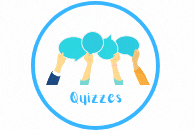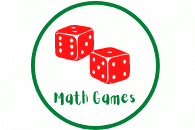Pre-Assessment for Kindergarten | Pre kindergarten Assessment
Preparing children for kindergarten is a crucial step in their educational journey. One effective tool in this process is pre-assessment. Pre-assessment evaluates a child's knowledge, skills, and abilities before entering kindergarten, allowing educators to tailor instruction to individual needs. In this article, we will explore the significance of pre-assessment, its benefits, and how it promotes a successful transition to kindergarten.
1. Understanding Pre-Assessment
1.1 What is Pre-Assessment?
Pre-assessment refers to the evaluation of a child's skills, knowledge, and abilities before they enter kindergarten. It provides educators with valuable information about each child's readiness for formal education. Pre-assessment can cover various domains, including cognitive, social, emotional, and physical development.
1.2 The Purpose of Pre-Assessment
The primary purpose of pre-assessment is to gather baseline data on a child's abilities and areas for growth. It helps educators identify each child's unique strengths and challenges, enabling them to create a personalized learning experience that supports the child's development.
2. Benefits of Pre-Assessment
2.1 Identifying Individual Needs
Pre-assessment allows educators to gain insights into individual children's needs, talents, and learning styles. By understanding each child's unique abilities, educators can tailor their instruction accordingly, ensuring that all children receive the necessary support.
2.2 Personalizing Instruction
With pre-assessment data in hand, educators can develop personalized learning plans for each child. This approach ensures that instruction aligns with children's abilities, making learning more engaging and effective.
2.3 Creating a Baseline for Progress Tracking
Pre-assessment provides a starting point to measure children's growth and progress throughout the kindergarten year. By comparing pre-assessment data with subsequent assessments, educators can track each child's development and make informed decisions about instructional strategies.
3. Types of Pre-Assessment
3.1 Observational Assessments
Observational assessments involve watching and documenting a child's behavior, interactions, and abilities in various contexts. These assessments provide valuable qualitative data and insights into a child's strengths and weaknesses.
3.2 Developmental Checklists
Developmental checklists are structured tools that help identify whether a child is meeting specific developmental milestones. These checklists cover different areas of development, such as language, motor skills, and social-emotional development.
3.3 Standardized Assessments
Standardized assessments use established criteria and benchmarks to evaluate a child's knowledge and skills. These assessments provide quantitative data that can be compared across a larger group of children.
4. Implementing Pre-Assessment
4.1 Collaboration between Parents and Educators
Collaboration between parents and educators is vital during the pre-assessment process. Sharing information, discussing observations, and establishing open lines of communication contribute to a comprehensive understanding of each child's abilities.
4.2 Building Trust and Engagement
Creating a welcoming and supportive environment for pre-assessment helps children feel at ease and encourages their active participation. Building trust and engagement with children and their families fosters a positive and productive assessment experience.
4.3 Data Collection and Analysis
Collecting and analyzing pre-assessment data requires careful documentation and organization. Educators should employ reliable assessment tools and methods, ensuring the accuracy and validity of the data collected.
5. Using Pre-Assessment Data
5.1 Tailoring Instructional Strategies
Pre-assessment data guides educators in selecting appropriate instructional strategies and materials for each child. It allows them to differentiate instruction, accommodating individual learning styles and needs.
5.2 Individualized Learning Plans
Based on pre-assessment results, educators can develop individualized learning plans (ILPs) for children who require additional support or enrichment. ILPs outline specific goals, strategies, and interventions tailored to meet each child's unique needs.
5.3 Identifying Early Intervention Needs
Pre-assessment helps identify children who may benefit from early intervention services. By recognizing potential challenges early on, educators can collaborate with specialists to address specific areas of concern promptly.
6. Pre-Assessment Best Practices
6.1 Establishing a Welcoming Environment
Creating a warm and welcoming environment for pre-assessment helps children feel comfortable and reduces anxiety. Providing clear instructions, using positive language, and offering reassurance contribute to a positive assessment experience.
6.2 Considering Cultural and Linguistic Diversity
Pre-assessment tools and practices should be sensitive to the diverse backgrounds and languages of the children being assessed. Assessments should be culturally responsive, ensuring fairness and inclusivity.
6.3 Assessing Holistically
Holistic assessment considers multiple domains of a child's development. It encompasses cognitive, social-emotional, physical, and language skills to provide a comprehensive understanding of a child's capabilities.
7. Pre-Assessment Challenges and Solutions
7.1 Addressing Anxiety and Stress
Some children may experience anxiety or stress during the pre-assessment process. Educators can implement strategies such as creating a familiar and supportive environment, offering breaks, and using child-friendly assessment methods to alleviate stress.
7.2 Ensuring Fairness and Equity
Pre-assessment should be conducted in a fair and equitable manner, considering the diverse needs and backgrounds of all children. Educators should be mindful of potential biases and strive to create an inclusive assessment process.
7.3 Encouraging Parental Involvement
Engaging parents in the pre-assessment process enhances its effectiveness. Educators can provide guidance, resources, and opportunities for parents to actively participate and support their child's learning journey.
8. Conclusion
Pre-assessment plays a vital role in preparing children for kindergarten. By evaluating children's skills, knowledge, and abilities, educators can personalize instruction, identify individual needs, and foster a successful transition to formal education. Through effective implementation and collaboration between parents and educators, pre-assessment serves as a powerful tool in unlocking the path to a child's educational success.
FAQs
9.1 What is the ideal time to conduct a pre-assessment for kindergarten?
The ideal time to conduct a pre-assessment for kindergarten is a few months before the start of the school year. This allows educators to gather relevant information and plan accordingly to meet each child's needs.
9.2 Can pre-assessment results predict future academic success?
While pre-assessment results provide valuable insights into a child's current abilities, they cannot definitively predict future academic success. Pre-assessment serves as a starting point for tailored instruction and early intervention, which can positively impact a child's educational journey.
9.3 How can parents prepare their child for a pre-assessment?
Parents can prepare their child for a pre-assessment by engaging in activities that promote their child's cognitive, social, and emotional development. Reading together, playing educational games, and encouraging curiosity and problem-solving skills can help children feel confident and prepared.
9.4 Is pre-assessment only beneficial for children with learning difficulties?
No, pre-assessment is beneficial for all children entering kindergarten. It helps educators understand each child's unique strengths and areas for growth, allowing for personalized instruction and support tailored to individual needs.
9.5 What should educators do with pre-assessment results?
Educators should use pre-assessment results to inform their instructional strategies, develop individualized learning plans, and identify children who may benefit from early intervention services. Pre-assessment data serves as a valuable tool for ongoing assessment and tracking children's progress throughout the kindergarten year.
 Math Quizzes Online - Addition, subtraction, Geometry, Comparison, Algebra, Shapes, Time, Fractions, Decimals, Sequence, Division, Metric system, Logarithms, ratios, probability, multiplication
Math Quizzes Online - Addition, subtraction, Geometry, Comparison, Algebra, Shapes, Time, Fractions, Decimals, Sequence, Division, Metric system, Logarithms, ratios, probability, multiplication
These quizzes range from multiple choice math quizzes, gap fill quizzes, matching exercises, hotspot quizzes with graphics and more for interactive math practice.
Fun Games for Kindergarten & Preschool
 If you prefer to learn on a fun way, then we have got you covered. To prepare ahead of a tidous exam like the one in this page, you can decide to address each topic separately until the skills are mastered. Parents should head over to the kindergarten math games section and find any game of their choice (which their kids love) and review the skills that correspond to this level.The games here include among others : memory games, Walk the plank, Fling the Teacher, En Garde Duel, Basketball Game, Penalty Shoot, pirate games, board games, moon battle games and more. Play all games here >>
If you prefer to learn on a fun way, then we have got you covered. To prepare ahead of a tidous exam like the one in this page, you can decide to address each topic separately until the skills are mastered. Parents should head over to the kindergarten math games section and find any game of their choice (which their kids love) and review the skills that correspond to this level.The games here include among others : memory games, Walk the plank, Fling the Teacher, En Garde Duel, Basketball Game, Penalty Shoot, pirate games, board games, moon battle games and more. Play all games here >>




